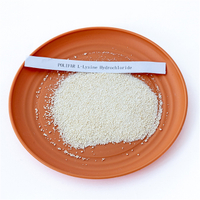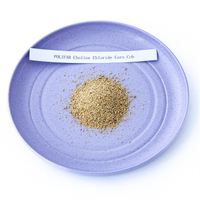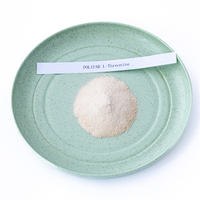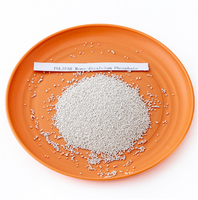Views: 0 Author: Site Editor Publish Time: 2023-10-11 Origin: Site








There are many problems in laying hen breeding such as feed quality and poor management, high mortality rate, sub-healthy chickens, frequent diseases, low egg commercialization rate, and poor economic benefits.
This article explains the hazards of low-quality laying hen feed from two aspects: feed quality and nutrition.
1. Low energy, high protein, nutritional imbalance
The metabolic energy of low-quality laying hen feed is about 10.4MJ/kg, and the crude protein content is 17%. Use energy intake to adjust the feed intake of laying hens. If the energy is low, the feed intake will be high, and the protein intake will be relatively high. Excess protein is converted into energy, which increases the metabolic burden on the body's liver and kidneys and damages the body's health. And when protein is converted into energy, it consumes energy.
Low-quality feed is also manifested in an unbalanced calcium to phosphorus ratio and poor vitamin quality. And the addition amount is small, which makes the quality of eggs and eggshells worse, and the commercial rate of eggs is low. Farmers need to use a large amount of electrolytic multivitamins, probiotics, etc., which increases the cost of breeding and brings invisible economic losses.

2. Poor source of protein raw materials
The use of low-quality feather meal, meat meal, blood meal and other animal-derived feed ingredients has high levels of E. coli and salmonella. It damages the intestinal health of laying hens and increases the metabolic burden on the kidneys and liver. Increased self-detoxification response, increased water intake, and excretion of loose feces. Low digestibility and poor quality fat (high in oxides or unsaponifiable matter) in meat meal and feather meal may cause sticky feces and black feces. Feed containing low-quality animal ingredients is left in the trough for a long time or even overnight in summer, and is prone to rancidity, deterioration, and mold, seriously affecting intestinal health and egg-laying performance of laying hens.
3. Poor security
First, animal feed contains high levels of heavy metals lead, arsenic, cadmium, chromium and fluorine. These heavy metals can cause immune cell dysfunction, thereby producing immune suppression, leading to an increased chance of immune failure and high morbidity.
Second, the protein of animal-derived feed ingredients is easily spoiled, and indicators such as volatile basic nitrogen, histamine and trimethylamine need to be strictly controlled. Animal-derived feeds must strictly control acid value, peroxide value, malondialdehyde content and other indicators.
Third, when using a large amount of corn by-products, attention should be paid to excessive levels of toxins such as zearalenone and aflatoxin. Its toxins will irritate and destroy the intestinal mucosa, increase the permeability of the intestinal mucosa, and lead to diarrhea in laying hens and a sudden decrease in egg production rate.
The fourth is the extensive use of cottonseed meal and rapeseed meal that exceed the standards for the anti-nutritional factors gossypol and thioglucoside. Free gossypol is very toxic, and content exceeding the safe limit will cause growth retardation, poisoning and even death. Feeding rapeseed meal containing high glucosinolates. Excessive feeding will cause thyroid enlargement, separation and shedding of thyroid and kidney epithelial cells, an increase in broken and soft eggs, tendon detachment, death and liver bleeding.
Feed safety is not only related to the safety and health of feeding animals, but also threatens the health and safety of humans.
4. Egg quality deteriorates
The black-colored feed has a high content of rapeseed meal, in which sinapine is converted into trimethylamine, which cannot be degraded by brown-shell laying hens, resulting in a fishy smell. Trimethylamine produced by oxidation and putrefaction when animal-derived feed deteriorates can also cause eggs to have a fishy smell. High cotton meal content can cause egg yolks to turn black during storage. The products produced by fatty acids such as meat and bone meal destroy fat-soluble vitamins and lutein, leading to vitamin deficiency, egg yolks that are not yellow, and skin color and toes and feet becoming lighter.
After laying hens enter the laying period, they consume a lot of nutrients in order to meet their maximum egg production needs. The physical condition of hens can easily deteriorate, affecting their own immunity. This will lead to the outbreak of pathogenic bacteria latent in the hens and increase the infection rate of external diseases. In particular, viruses such as avian influenza virus and egg production decline syndrome virus have been latent in hens for a long time. Once the peak egg production period is reached, hens will break out when their immunity is reduced, making them prone to disease and causing the egg production rate to fail to increase. Therefore, feed nutrition and disease resistance during the brooding, rearing, expected laying, and laying periods are closely related. Poor nutrition can aggravate the condition or lead to disease outbreaks.
To sum up, the consequence of low-quality feed is that the egg production peak cannot be reached. Even if you get to the top, it doesn't last long. The intestinal health of laying hens is damaged and prone to disease. The egg production performance deteriorates, the dead rate is high, and the eggs are even eliminated early, and the commercial rate of the eggs is low, causing huge economic losses. POLIFAR is committed to improving animal health and farm economics. Our feed additives can make up for the nutrients missing from low-quality feed, giving animals balanced nutrition and improving immunity. If you want to know more, please visit our website www.polifar.com






